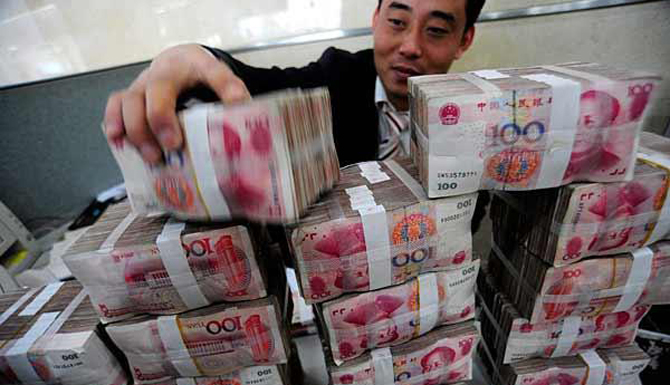US Senate Bill would Hit China over Undervalued Money

The statement warned that the proposed legislation "may seriously affect the process of China's exchange rate reform and may lead to trade war, which we do not want to see."
"Politicizing economic issues is not helpful to resolving the issues," the statement said. "On the contrary, it's easy to complicate the issue and bring negative impacts on the economic recovery and market confidence."
The Obama administration, like the Bush administration before it, agrees that China needs to appreciate its currency but has cautioned against unilateral action that could generate a trade war.
The Senate vote coincides with a trip to Beijing by Treasury Undersecretary Lael Brainard. Treasury said in a statement that Brainard would tell the Chinese that while the yuan "has appreciated 10 percent adjusted for inflation since June 2010, the currency remains substantially undervalued, and more progress is needed."
The House in September 2010, voted 348-79 for a more narrow China currency bill, but the top two Republicans, current Speaker John Boehner and Majority Leader Eric Cantor were against it and do not appear inclined to bring up the issue if it should pass the Senate.
Asked about it at a news conference Monday, Cantor replied only that he was "curious, really, as to where the White House is on that." He said he wanted to find out if there were any "unintended consequences" from the measure.
Associated Press writer Scott McDonald in Beijing contributed to this report.
« previous 1 | 2 |
- The ‘Virtuous Circle’ of Carrot & Stick Sanctions
- Suu Kyi Curbs Election Campaign After Falling Ill
- Burma Business Roundup (Saturday, March 24)
- Sea Tribunal Ruling: Bangladesh’s Gain, Burma’s Paying
- Burma Business Roundup (Saturday, March 17)
- Floating Toward Honesty: How Burma’s Bent Finances Can Go Straight
- End Near for Burma's Dual Currency Exchange
- Burma Business Roundup (Saturday, March 19)
- Chinese Trade Expo to Focus on Burma
- Dawei Port in Doubt with Bangkok Hub Plan
